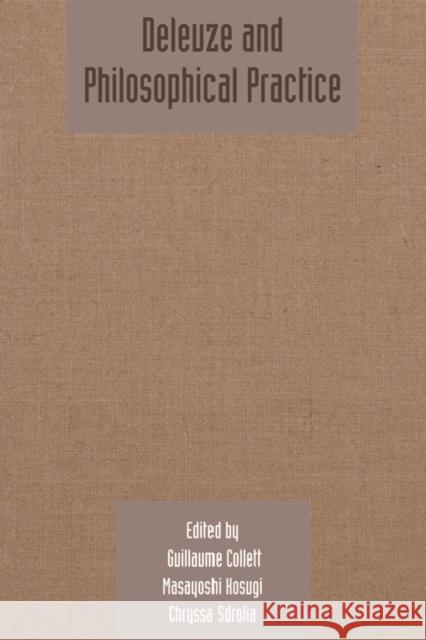Deleuze and Philosophical Practice: Deleuze Studies Volume 7, Issue 2 » książka
Deleuze and Philosophical Practice: Deleuze Studies Volume 7, Issue 2
ISBN-13: 9780748682409 / Angielski / Miękka / 2013 / 148 str.
Considering Deleuze's now near-canonical status in art theory, media theory, cultural studies, but perhaps not philosophy, it is necessary to question the precise link between Deleuze's philosophy and the other disciplines with which his work engages. This is particularly pertinent considering the shifts in Deleuze's own understanding of this relation during his career. On the one hand, Deleuze always considered philosophy to be inseparable from a plane of immanence outstripping it and necessarily invested with human practices. On the other hand, in What is Philosophy? Deleuze and Guattari definitively consider philosophy to have a privileged relation to this plane. This special issue presents analyses of and aims to provide some context for this relation in Deleuze's work, by focusing on Deleuze's conception of the relation between thought and practice, the brain and the hand (or mouth). In this issue, the nature of this practice ranges from the affective and the embodied, and from learning and enculturation, to artistic processes, to onto- and phylogenesis, and to specific examples of Deleuze's own method of creating concepts.











